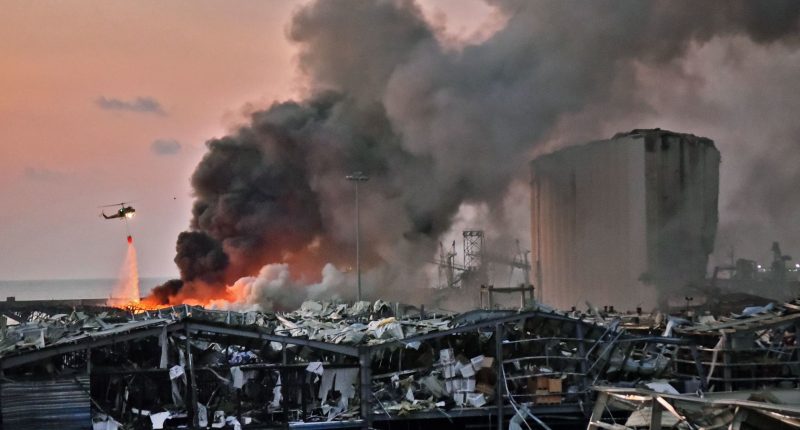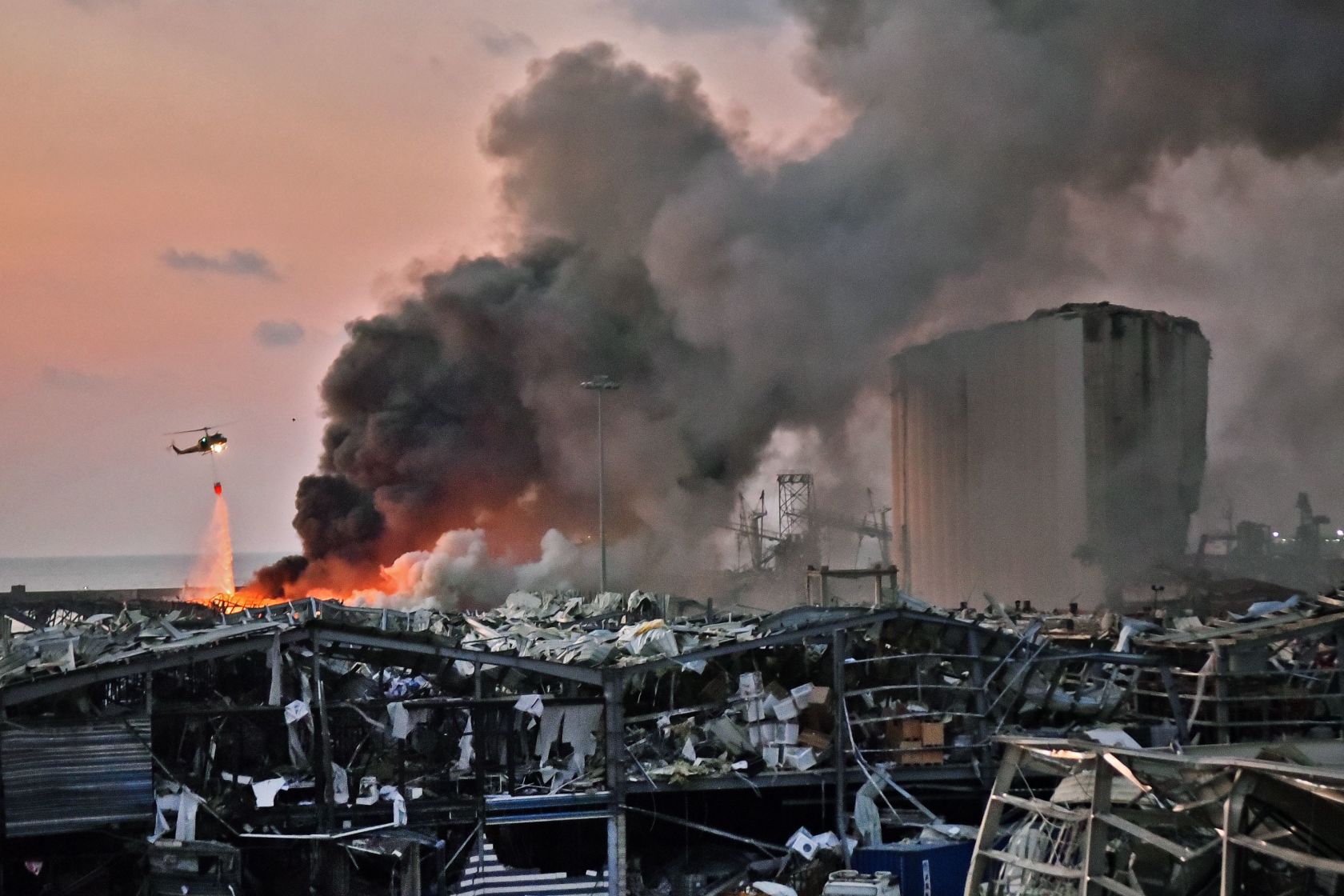- The entire government of Lebanon has resigned in the aftermath of last week’s devastating explosion which killed 200 people and injured over 6,000
- Prime Minister Hassan Diab announced the resignation on Monday evening local time in a televised address
- The resignation comes after citizens blamed government negligence for the disaster, exacerbating months of protests and demonstrations against the Lebanese government
- The now-former Prime Minister has called for an early election and blamed the country’s “elite” for decades of chronic disruption
- Though resigned, Diab will stay in government with some of his ministers in a caretaker role until a new administration is formed
The entire government of Lebanon has resigned in the aftermath of last week’s devastating Beirut explosion which killed more than 200 people and injured over 6,000.
Lebanon Prime Minister Hassan Diab announced the resignation of his entire cabinet after days of riots and protests across Beirut.
Citizens of the capital blame government negligence for the recent disaster. In particular, they’re accused of letting the material believed to have caused the explosions — ammonium nitrate — be stored in the Beirut port for seven years. Roughly 2.75 tonnes of the chemical was stored in the port.
Since the blast, Lebanese people have been clashing with security forces, hurling rocks at government buildings and trying to avoid tear gas. Hundreds of people have reportedly been wounded in the protests and one policeman killed.
Prime Minister Diab tried to show solidarity with his people in his televised address on August 10, wherein he announced the government’s resignation.
He said he supports the demands by the Lebanese people to hold those responsible for the blast accountable for their actions, though he did not say who they were.
Rather, he took a shot at the country’s “elite” for decades of chronic corruption.
“A very thick and thorny wall separates us from change,” the now-former Prime Minister said.
“A wall fortified by a class that is resorting to all dirty methods in order to resist and preserve its gains, its positions, and its ability to control the state,” he said.
He said by resigning, the government was going “back to the people to fight with them against corruption”.
However, most believe the August 4 explosion was not the catalyst for recent protests and riots but rather the last straw for the people of Lebanon.
In fact, just hours before the blast, anti-government protestors were already clashing with security forces outside of the Energy Ministry building, demanding accountability from the country’s leaders.
Moreover, Hassan Diab only took on the role of Prime Minister after former leader Saad Hariri resigned in response to demonstrations last October.
Prime Minister Diab had previously called for early elections to be held over the weekend, before later resigning on Monday evening local time.
However, though resigned, the Prime Minister will stay on in a caretaker role along with some of his ministers.
They will remain in charge until a new administration is formed.







